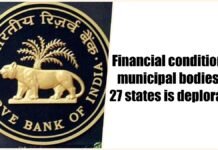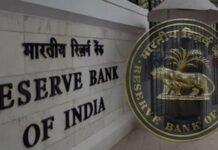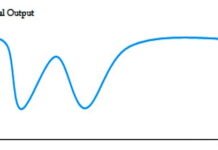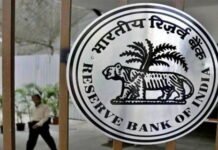
Mumbai: Despite many efforts by the government to boost credit supply by offering many a scheme to MSMEs and other priority sectors, the same has plunged to a low 1.9 percent in the June quarter from 10.2 percent a year ago, says a report. To help small business tide over the impact of the pandemic, the government has offered a credit-driven boost to the economy.
Quoting data from the Reserve Banks’ quarterly statistics on deposits and credit for the June quarter, Care Ratings on Tuesday said in absolute terms, overall bank deposits stood at Rs 141.3 lakh crore in June 2020, up 11.5 per cent from Rs 126.7 lakh crore in June 2019. Outstanding credit stood at Rs 103.3 lakh crore, up 6.4 per cent but lower than 11.7 per cent in the same period in June 2019. But on a sequential basis, credit growth has seen a negative 1.1 per cent during the reporting period, which was also a negative 1 per cent in the March 2020 quarter. Though overall contraction in credit demand has continued in the June quarter at minus 1.1 per cent from minus 1 per cent in June 2019, in absolute terms incremental credit declined by a higher Rs 1.2 lakh crore in June 2020 from Rs 1 lakh crore in June 2019. This is owing to decline in overall sectoral growth (agriculture & allied credit declined by 0.4 per cent incrementally, industrial credit declined by 1 per cent, services sector declined by 2.6 per cent growth and personal loan segment declined by 2.5 per cent growth, says the report.

This was led by a massive plunge in credit demand by the priority sector and personal loans, both of which have the mainstay of the banks for many quarters now as industries have not been borrowing much. While the loan demand from the priority sector plunged to a low 1.9 per cent in the June 2020 quarter from a high 10.2 per cent a year ago, the same from the farm sector declined to 4.7 per cent from 7.2 per cent. Similarly, demand from the industry fell to 2.2 per cent from 6.4 per cent, it plunged to 10.7 per cent from the services sector from 13 per cent and from personal loans fell to 10.5 per cent from 16.6 per cent.
This had the total non-food credit which excludes priority sector credit, demand nearly halving to 6.7 per cent from 11.1 per cent, says the report. Non-food credit include loans to agriculture and allied activities, industry, services, and retail (personal loans).
Growth in credit to the industrial sector which accounts for 31.8 per cent share in non-food credit, moderated on the back of slow growth in large industries which declined by 3.7 per cent in June 2020 from 7.2 per cent in June 2019; and negative growth in small business which declined by 3.7 per cent in June 2020 from 0.6 per cent growth in June 2019, and medium industries that declined by 9 per cent from 2.2 per cent growth in June 2019. Also, some large sectors like food processing, textiles, basic metals, iron & steel and infrastructure, which account for around 70 per cent of the overall industrial credit had negative to slow credit growth. The retail/personal loans segment slowed down to 10.5 per cent from 15 per cent in March 2020. However, housing loans continue to remain the single largest segment of lending in outstanding credit to retail/personal loan portfolio. Housing loans growth slowed down to 12.5 per cent in June 2020 from with 18.9 per cent in June 2019 and formed 54 per cent of the total credit to personal loan segment.
Additionally, growth in credit to service sector moderated to 10.7 per cent from 13 per cent in June 2019 on account of slow growth in credit to NBFCs which accounts for 31.6 per cent of the total service sector loans and trade segment that accounts for 21.5 per cent share in service sector loan which toned down to 25.7 per cent and 6.1 per cent respectively, in Q1 of FY21 from 37.6 per cent and 8.9 per cent respectively in the previous year. Indicating more troubles for lenders, unsecured personal loans that have been their mainstay for many quarters now, has also started to taper off which in the June quarter led the fall in overall bank credit by a full 2.5 percentage points, says the report.






















































